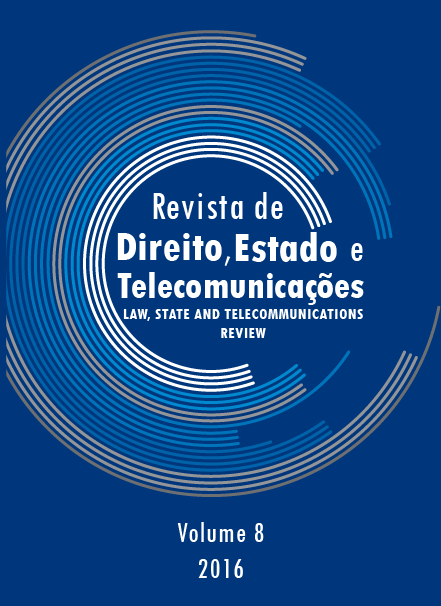The Self-Regulation of Electronic Commerce: An Appraisal in Accordance to the Chilean Law of Unfair Competition
DOI:
https://doi.org/10.26512/lstr.v8i1.21524Palavras-chave:
self-regulation, competition, honor, freedom of expression, tutelageResumo
Purpose ”“ Electronic commerce or e-commerce constitutes a commercial activity on the rise. Although it has many advantages, there are several lingering factors that prevent its consolidation, such as the lack of trust of the potential consumer/user. In order to overcome that obstacle, instruments of self-regulation were created in the field of advertising. Firms that wish to distinguish themselves favorably against their competitors have the option of adopting those instruments, which play a praiseworthy role regarding the target audience and constitutes a considerable improvement of consumer rights. However, on occasions, problems arise in the market when those systems of self-regulation bind third parties that did not voluntarily enter into a contract. This paper tackles the question of if self-regulation of advertising in the net can be put in place should it affects the honor of the third party not committed with the fair-practices document.
Methodology/approach/design ”“ In this article, we will refer to the particularities that arise from a case concerning the Chilean Law no. 20,168, of 2007, on unfair competition and self-regulation of advertising in the Internet pertaining WOM, Movistar, Entel, Claro and Virgin.
Findings ”“ The Chilean Law no. 20,168, of 2007 contributes to the goal of discouraging conduct contrary to good faith or good practices in advertising in conjunction with codes of conduct that have been approved in the field related to the systems of self-regulation.
Referências
BLACK, J. Constitutionalising Self-Regulation. Modern Law Review, 1996: 24-55.
CANNATACI, J. & Bonnici, J. P. Can Self-regulation Satisfy the Transnational Requisite of successful Internet Regulation. International Review of Law Computers, 2003: 51-61.
DARNACULLETA GARDELLA, M. M. La autorregulación y sus fórmulas como instrumentos de regulación de la economía. Revista General de Derecho Administrativo, 2009: 1-20.
FISS, O. Free Speech and Social Structure. Iowa Law Review, 1986: 1405-1425.
GÓMEZ GARRIDO, J. Derecho al honor y persona jurídica-privada. Revista del Departamento de Derecho de la Universidad de La Rioja: REDUR, 2010: 205-225.
LARRAIN PÁEZ, C. Algunas cuestiones relevantes sobre el derecho al honor y la responsabilidad civil en particular, sobre el daño moral, el artículo 2331 del código civil, y la legitimación activa. Revista Chilena de Derecho Privado, 2011: 143-189.
LÓPEZ JIMÉNEZ, D. La autorregulación de las TIC por parte de las empresas de economía social: D´confianza como modelo de referencia. Revista Internacional del Mundo Económico y Del Derecho, 2014: 1-28.
NAVARRO, P. E. La eficacia del Derecho. Una investigación sobre la existencia y funcionamiento de los sistemas jurídicos. Madrid: Centro de Estudios Constitucionales, 1990.
OGUS, A. Rethinking Self-regulation. Oxford Journal of Legal Studies, 1995: 97-108.
OTAMENDI, J. La competencia desleal. Revista Jurídica de la Universidad de Palermo, 1998: 1-44.
Downloads
Publicado
Edição
Secção
Licença
By submitting this paper to the Law, State and Telecommunications Review,
I hereby declare that I agree to the terms of the Creative Commons Attribution 4.0 International (CC BY 4.0).


